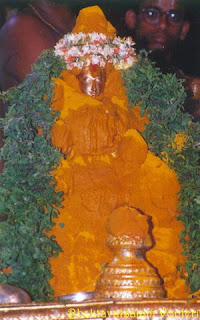Vaikunta Ekadasi 2020 Date – Mukkoti Ekadashi Celebrations in Tirumala
Is Vaikunta Ekadasi and Mukkoti ekadasi same?
Vaikunta Ekadasi / Mukkoti Ekadasi. Vaikunta Ekadasi, also popular as Mukkoti Ekadasi has a special significance in the Hindu traditions and is one of the best days to pray to Lord Vishnu. The Dhanurmaasa Sukla Paksha Ekadasi day is considered as the Vaikunta Ekadasi day.
This 2020 year there will be 2 Ekadasi
Vaikunta Ekadashi 2020 Date – Monday, 6th January & Friday, 25th December
Dwadasi 2020 Date - Tuesday, 7th January
Vaikuntha Ekadashi is one of the important and auspicious days for Hindus. It is dedicated to Vishnu. It occurs in the Hindu calendar, in the month of Margashirsha (between December and January). When observed, it bestows liberation from the cycle of birth and death.
In Titumala, Vaikunta Ekadasi is celebrated in a grand manner. More than one lakh devotees take darshan of Lord Sri Venkateswara Swamy on Mukkoti Ekadasi day.
The main entrance of the temple will be close on the night of Dasami, a day before vaikunta ekadasi after ekanta seva. On Ekadashi morning the Mukkoti Pradakshina Margam (Vaikunta Dwaram) will be kept open till the ekanta seva of lord on Vaikunta Dwadasi.
Vaikunta Dwara Darshanam
Sarva darshanam usually starts by 5 am and the waiting time can be from 24 to 36 hours.
Devotees need to book tickets in advance for Vaikunta dwara Darshanam through TTD Seva Online Portal. But, *Special tickets for Darshanam may not be released on Vaikunta Ekadasi.
Special Notes:
- No reference letters will be entertained, which means Break Darshan for recommendation letters will not be available.
- No privileged darshan, including parents with infants, defence, physically challenged and Senior Citizens, NRIs, donors.
- Supadam entrance will be closed.
- Food and water will be provided in the compartments.
- Some times limited special darshan tickets will be provided for local devotees.

















